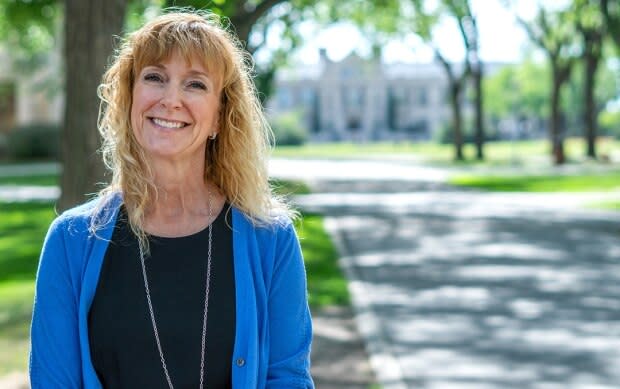'Year of the pandemic': After disrupted Grade 12, more remote learning ahead for 1st-year university students
Both the University of Regina and the University of Saskatchewan have committed to remote classes come fall — a decision school administrators acknowledge may be disappointing for students, but one they say is necessary for safety.
The online approach will include live video courses, through Zoom for U of R students and Webex for U of S students, and online classes, where students work at their own pace.
U of R interim provost and vice-president of academics david Gregory (who spells his first name with a lowercase "d") says first-year students will likely be disappointed that they won't get to take classes on campus, but he said he hopes they can meet up outdoors or online to study or swap notes.
"Likely their high school graduation did not take place, and that was … a prelude to the disappointment that they're going to experience for not being able to attend university in person," said Gregory.
"Unfortunately, 2020 has turned into the year of the pandemic. The reality is health and safety is a priority for all of us."

Recent Grade 12 grad Jerico Sampang, 18, said he's a bit sad that he can't show up to his classes at the U of R in person on the first day.
"I have always dreamt of a classic movie entrance to a great four years with exciting people," said Sampang. "But that dream will have to be put on hold for a while."
Sampang said he has trouble staying focused and motivated while studying remotely.
"Sitting down and looking at my screen for a couple hours a day to get some writing or work done is very difficult for me," he said. "I am much more of an interactive learner."
Patti McDougall, the U of Saskatchewan's vice-provost of teaching, learning and student experience, said she wants students to have the most successful first term possible even though they will have to use different learning methods.
"It's not the same experience, we understand that, but we want to make it an outstanding experience," she said.
"Even though we may be doing most of our delivery in a remote environment, we still have all of the amazing people in different areas of research, experts across the board, and students are still going to be able to access those people.
"They're still going to be learning from the best of the best."
While the Ministry of Education has so far remained committed to reopening schools to in-person learning, Gregory said universities can't do that because they're so much bigger.
On an average day in the fall, the U of R has 24,000 people on campus, while the U of S has 30,000. And Gregory said a recent study out of Cornell University said a typical university student will have approximately 500 contacts in a week.

"Our population … is like Swift Current, or more, but we're in a small few blocks," said Gregory. "We have students and faculty moving through hallways, using elevators and stairs — the larger spaces suddenly constrict."
That high volume of traffic "is not a wise practice with COVID-19," he said.
The U of R will allow about 600 third- and fourth-year students to participate in labs on campus, since they need specific equipment. But the class sizes will be reduced to less than half and physical distancing will have to be maintained.
The number of students allowed at the U of S will be closer to 2,500, mostly those enrolled in medicine and similar fields. The rest will have to navigate the world of learning from home.
And it's a similar story elsewhere in Canada.
Regina's Mischa Miller, 17, planned to move to Vancouver to take classes at UBC in the fall.

She said she hoped to get her own place and make new friends. Instead, she'll be studying at her parents' home.
She said she is trying to stay positive, but she doesn't feel prepared since she didn't finish Grade 12 with regular assignments and tests.
"I wasn't, like, writing essays or anything, so I've kind of lost that touch," she said. "I definitely have to pick that up and do a lot more work in my first year."
The U of S is offering three-week remote "bridge" courses in July and August so students can brush up on subjects like math, physics, chemistry and biology.
"You've got lessons, assignments, quizzes, virtual labs, and those are all designed to build confidence amongst that incoming first year class for those in those topic areas," said McDougall.
"Those are the ones that we thought might be making our incoming students the most anxious."
She said the school is also developing remote-learning resources on time management and independent learning.

Gregory said the U of R will also have extra resources for students on its website to help those in their first year, or people struggling with being online only.
That approach is similar to the one being taken by UBC, where Miller is now enrolled remotely.
What is still unknown is what courses will look like the following semester, which starts in January.
Miller said she'd be nervous to return to in-person classes as someone with asthma.
Neither university in Saskatchewan has made a final decision yet on the January term, but told CBC that announcement will follow soon.
Gregory said it's unlikely the U of R will resume classes in the winter.


